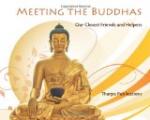The ordinary bath-tub provided for a canary is much too small. Mrs. Olive Thorne Miller says that it should be nearly as wide as the spread of his wings, so that he can beat the water and toss it over him in a spray. A common earthen saucer belonging to a flower-pot is very good for the purpose. As this saucer will be too large to go through the cage-door, it should be placed on a large folded cloth or paper and the upper part of the cage placed over it. While the bird is taking his bath, the floor of the cage may be made clean for the day.
It is a good plan to give a canary bread, crackers, a little of the hard-boiled yolk of an egg, or a piece of apple. In summer he will enjoy a bunch of chickweed. In winter he may have a bit of lettuce or cabbage leaf. He should have something green every day. Of course he must have also canary and rape seeds, and occasionally a very little hemp seed for a treat.
If the canary or rape seed is poor the bird will scatter it and refuse to eat it. Only seed which is large and clean should be used. It is better to buy each kind by itself and mix them afterwards. The hemp seed is so rich that not more than half a small teaspoonful should be given at a time. Do not mix this with the other seeds, but scatter it on the floor of the cage.
Mosquitoes sometimes annoy a canary very much. A loose bag of netting drawn over the cage will save him from unnecessary suffering. When these poor prisoners are in our care we must do what we can to protect them and make them happy. No true bird-lover would choose to see his pets in cages, but we cannot turn the defenseless little creatures out into the cold. If no one would buy a canary, there would be no more caught, and the cruel business would come to an end. Is it not worth while to think how much better it is to have no caged pets at all? In this free land of ours shall we deny freedom to the bird, which, above all other creatures, needs space and sunshine?
AN INDIAN STORY.
In a little book about Omaha there is this story which is told by Bright Eyes, the daughter of an Indian chief. “We were out on a buffalo hunt. I was a little bit of a thing when it happened. Father could neither speak English nor read and write, and this story shows that the highest moral worth can exist aside from all civilization and education.
“It was evening. The tents had been pitched for the night, the camp-fire made, and mother and the other women were cooking supper over it.
“I was playing near my father when an Indian boy, a playmate, came up and gave me a little bird which he had found.
“I was very much pleased. I tried to feed it and make it drink. After I had played with it a long time, my father said to me: ’My daughter, bring your bird to me.’
“When I took it to him he held it in his hand a moment, smoothed its feathers gently, and then said: ’Daughter, I will tell you what you might do with your bird. Take it carefully in your hand out yonder where there are no tents, where the high grass is. Put it softly down on the ground and say as you put it down, “God, I give you back your little bird. Have pity on me as I have pity on your bird."’




